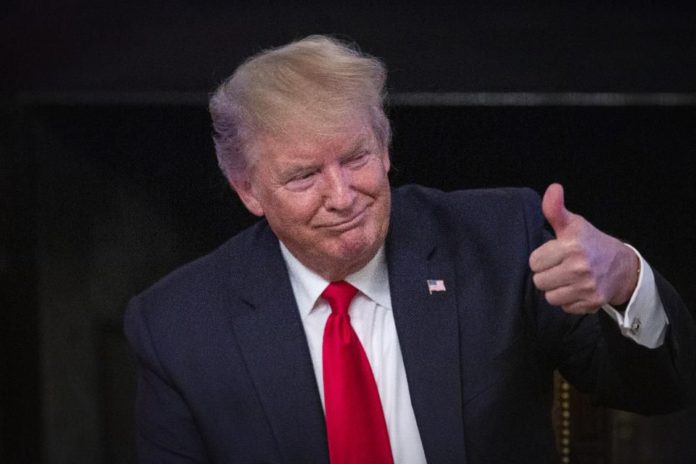President Donald Trump’s planned U.S. border wall with Mexico got another boost after a federal appeals court lifted an order that had blocked his use of $3.6 billion in military construction funds.
The 2-1 decision issued Wednesday night by the U.S. Court of Appeals in New Orleans allows Trump to begin diverting the funds from other military projects while the government appeals a December ruling by a federal judge in Texas that it’s illegal to use the money for the wall.
The U.S. Supreme Court in July lifted an order in California that blocked Trump from proceeding with wall projects using $2.5 billion in military funds that had been earmarked for drug interdiction.
“This is a victory for the rule of law,” the White House press secretary said of the appeals court decision. “We are committed to keeping our borders secure, and we will finish the wall.”
U.S. District Judge David Briones in El Paso ruled in December that Trump broke the law by declaring a national emergency to redirect military money to the wall project after Congress specifically refused to pay for it. The lawsuit was filed by El Paso County, Texas, and the Border Network for Human Rights.
A federal judge in Oakland, California, reached the same conclusion the next day in challenges brought by several states and the Sierra Club and put his ruling on hold pending appeal.
The majority decision Wednesday was issued by U.S. Circuit Judge Edith Jones, an appointee of President Ronald Reagan, and Andrew Oldham, a Trump appointee. Circuit Judge Stephen Higginson, appointed to the court by President Barack Obama, dissented, saying the lawsuit should be expedited instead, given the importance of the issue.
‘Unlawful Act’
A bi-partisan group of constitutional lawyers challenging Trump’s action in the El Paso case view the appellate ruling as a temporary setback. They predict the lower courts’ decisions in Texas and California — that the administration is attempting an illegal end-run around Congress’s budgeting authority — will ultimately prevail.
“This is an unlawful act by this administration, and we are going to keep challenging it,” Kristy Parker of Protect Democracy Project Inc. said in a phone interview Thursday.
“This is all about the separation of powers,” Parker said. “We’re intended to have three separate, co-equal branches of government. Congress has the power of the purse, and we have an executive who is trying to usurp that power. We’re very happy to put this before any judge in the land — liberal or conservative.”
The attorneys said they planned to huddle with their clients right away to decide whether to ask the entire New Orleans appeals court to re-hear the appeal or instead ask the Supreme Court to step into the challenge.
Clear Path
Still, until some other court order is issued in this case, Parker agreed the path is now clear for the Trump administration to shift as much as $6.1 billion in military funding for border wall construction.
“The status quo goes back,” she said. “All the spending the administration sought to do when Trump announced the emergency last year it can now do” while the court challenges continue.
Last year, Trump declared he would divert $3.6 billion from the Defense Department’s military construction budget and $2.5 billion from the Pentagon’s drug-interdiction budget to build his wall. That was after Congress refused to earmark more than $1.375 billion to construct a physical barrier on the southern border. Lawmakers approved the same amount for the new fiscal year.
Stuart Gerson, an attorney who held high Justice Department posts in both Democratic and Republican administrations and who is working with Protect Democracy, said it is “hard to know” if Trump will order construction to begin before the legal questions are fully resolved.
“The stay has been lifted but we still won the underlying case on the merits,” Gerson said Thursday in a telephone interview. “Would the administration want to act in the face of a judgment against it? That’s hard to say.”
Source: Bloomberg

